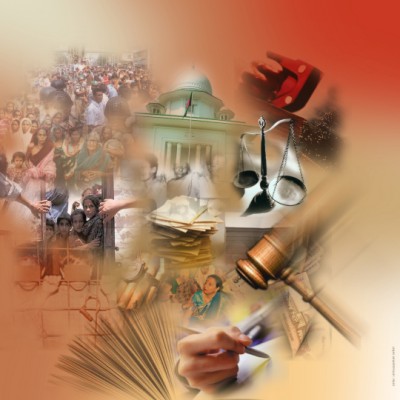
THE constitutional
aphorism that all are equal in the
eye of law has become more of a cliché
than a realised ideal in our context.
In spite of the constitutional guarantee
for justice and fair-play to all people,
presence of institutions and availability
of a capillary of laws, the justice
system has failed to reach out to
the common man. This is all the more
unfortunate because: (a) Bangladesh
was achieved through a Liberation
War that aimed at justice for all,
political, economic and social; and
(b) we have had a democracy reincarnated
for the last more than one decade.
The reasons are not
far to seek: judiciary is not independent
from the all-powerful executive, instruments
of power have been abused, lower judiciary
is by and large corrupt and vulnerable
to executive pressure, case-loads
have been exacting on the judiciary
leading to justice delayed being justice
denied and being costly.
The just-retired Chief
Justice has aptly said that our poor
are deprived of justice given the
system we presently have. While we
have shown a tendency towards legislating
more, law enforcement has been flawed
and weak, itself requiring reform,
although we never tire of saying we
need reform of law. Little wonder,
there is a culture of impunity feeding
largely on poor enforcement of law.
In all, justice has not permeated
the individual level.
In
this segment of the supplement, we
have focused on the inadequacies of
the system and have had some eminent
experts suggest areas where reforms
are necessary.
................................................................
Editor

